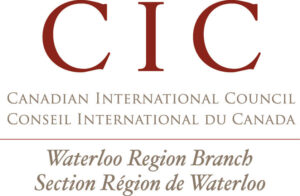
VIRTUAL “ROUNDTABLE”
Addressing Inequality in Canada & Around the World:
Income Inequality, the Concentration of Wealth, and Technological Change
Program and Background on the Event
Program Outline
June 8 and 9, Tuesday and Wednesday Program Outline
June 8 (Tuesday) – 1:00 to 4:00 pm Eastern
Introductory Remarks: Dr. Savvas Chamberlain, The Savvas Chamberlain Family Foundation, Project Sponsor
TOPIC 1: Magnitude, Trends, Causes & Impacts of Global Income & Wealth Inequality
Moderator – Dr. Micheál Kelly, Dean, Lazaridis School of Business and Economics, Wilfrid Laurier University, Waterloo
1:05 pm – Speaker – Dr. Michael Veall, Professor of Economics, McMaster University, Hamilton, Ontario – “Recent Trends in Income Inequality: Canada and the World”
1:35 pm – Speaker – Dr. James Davies, Professor Emeritus, Department of Economics, Western University, London, Ontario – “Recent Trends in Wealth Inequality: Canada and the World”
2:00 – 3:00 pm – Panel – Additional Presentations, Q&A and Discussion
• Dr. W. Craig Riddell, Royal Bank Faculty Research Professor, Vancouver School of Economics, University of British Columbia
• Dr. Janet Gornick, Director, Stone Center, James M. and Cathleen D. Stone Distinguished Chair in Socio-Economic Inequality, The Graduate Center, City University of New York, New York
• Dr. Lars Osberg, Professor of Economics, Dalhousie University, Halifax
TOPIC 2: Rapid Technological Change & the COVID-19 Pandemic: Their Impact on the Future Nature of Work
Moderator – Dr. Norah McRae, Associate Provost, Co-operative and Experiential Education, University of Waterloo, Ontario
3:00 pm – Speaker – Dr. Stijn Broecke, Senior OECD Economist, Paris, Leader of the OECD’s Future of Work Initiative
3:30 pm — Speakers – Diana Rivera, Senior Economist and Nisa Malli, Manager, Innovative + Inclusive Economy, Brookfield Institute for Innovation and Entrepreneurship, Toronto – “Perspectives on Canadian Transitions and the Future of Work”
June 9 (Wednesday) – 1:00 to 4:00 pm Eastern
TOPIC 2 (Continued) – Rapid Technological Change the COVID-19 Pandemic: Their Impact on the Future Nature of Work
Moderator: Dr. Norah McRae, Associate Provost, Co-operative and Experiential Education, University of Waterloo, Ontario
1:00 pm — Panel — Additional Presentations, Q&A and Discussion
• Ruth Castel-Branco, Manager, Future of WorkProject, Southern Centre for Inequality Studies, University of the Witwatersrand, Johannesburg, South Africa – “The contested nature of digital innovation and its implications future of work(ers): a view from the global South”
• Caitlin MacGregor, Chief Executive Officer, Plum.io, Waterloo, Ontario
• Dr. Élisabeth Vallet, CIC Fellow, and Director, Centre for Geopolitical Studies and Raoul-Dandurand Chair, UQAM, and Associate Professor, Royal Military College Saint Jean, Québec
TOPIC 3: What Policy, Business, Technological and Societal Responses Are Called For?
Moderator – Joseph Fung, CEO and Founder, Uvaro and Kiite, Waterloo, Ontario
2:00 pm – Speaker – Dr. Claire Trottier, Board Member, Trottier Family Foundation; philanthropist, advocate and activist; and a supporter of “Patriotic Millionaires” and Canada’s “Resource Movement”, Montreal – “Tax me: why more progressive taxation is necessary to help tackle wealth inequality”
2:40 – 4:00 pm – Panel — Additional Presentations, Q&A and Discussion
• Dr. Peter J. Warrian, Distinguished Research Fellow, Munk School of Global Affairs and Public Policy and economic advisor to the Vatican on technology and the future of work and contributor to “Care is Work, Work is Care”, “The Future of Work – Labour after Laudato si’” Project”
• Dr. Miles Corak, Stone Center Senior Scholar, Professor of Economics, Stone Center on Socio- Economic Inequality, The Graduate Center, City University of New York
• Kate Higgins, Deputy Executive Director, Oxfam Canada, Ottawa, OntarioDr.
• Dr. Matthew Mendelsohn, Visiting Professor and co-founder of First Policy Response at Ryerson University, and a Senior Advisor to BCG’s Global Public Sector Practice, Toronto, Ontario
The Canadian International Council thanks the Savvas Chamberlain Family Foundation for its support for this project.

About The Savvas Chamberlain Family Foundation: In 2011, Savvas Chamberlain founded The Savvas Chamberlain Family Foundation in order to support community causes and projects in and around Waterloo Region and Ontario. One of the goals of the Foundation is to help to create a more civilized, gentle and caring Canada. The Foundation funds Canadian initiatives in health and welfare, education, the arts, culture, music and the environment. In particular, it focuses on helping Canada’s underprivileged.
Speaker and Panelist Presentations and Supporting Documents
Speaker Biographies

Dr. Stijn Broecke
Stijn Broecke is a Senior Economist at the OECD where he leads the organization’s Future of Work initiative. He was co-editor and co-author of the 2019 OECD Employment Outlook on the Future of Work, and he currently leads a large research program on the impact of Artificial Intelligence on the labour market.
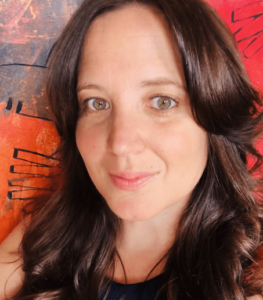
Ruth Castel-Branco
Ruth Castel-Branco manages the Future of Work research project at the Southern Centre for Inequality Studies, University of the Witwatersrand. Previously, she was the project coordinator on social and maternity at the International Labour Office in Mozambique, a labour organiser with Jobs with Justice, and outreach coordinator for 50 Years in Enough.She is the recipient of the2021 Open Society Inequality Fellowship and alumni of the International Centre for Development and DecentWork.Her research interests include informal worker organising and workers’ rights, redistributive policies and social protection, digital technologies and the changing nature of work. She holds a BA in Geography and African Studies from the University of Wisconsin-Madison (2005), an MA in Development Studies from the University of KwaZulu-Natal (2012) and is awaiting her PhD in Sociology at the University of the Witwatersrand (2021).
Link: Digital technologies, the future of work(ers) and inequality

Savvas Chamberlain, M.Sc. Ph.D. FRSC, FIEEE, Dr.Eng, C.E., Member of the Order of Canada
Former Founder, Chairman & CEO of DALSA Corporation and current CEO of EXEL Research Inc., philanthropist, Distinguished Professor Emeritus of Electrical and Computer Engineering of the University of Waterloo, scientist, inventor, and entrepreneur. Dr. Savvas Chamberlain was a professor in the Electrical and Computer Engineering Department of the University of Waterloo for more than 25 years where he pioneered and developed new technology in CCD and MOSFET semiconductor devices. He successfully commercialized this technology in Canada. He published more than 125 papers in refereed journals, including 22 patents. In 1980, Dr. Chamberlain founded DALSA Corporation, a successful semiconductor and electronics company in Waterloo, Ontario. As its CEO, he grew DALSA to $250 million revenue, with more than 1,000 employees world-wide. In 2011 he resigned from the company. Presently the company is called TeledyneDALSA and has its Canadian headquarters in Waterloo. As the current CEO and Chairman of EXEL Research Inc., Dr. Chamberlain is involved in investing in technology companies and helping Canadian start-up technology companies move to a profitable and lasting growth stage. He is on the Board of Directors of five private Canadian Companies and the board of Governors of Wilfred Laurier University. Savvas likes, gardening, loves outdoors, nature, walking, hiking, biking, and classical music. Likes also Greek music and literature, live theatre, and international current affairs. The full C-V and philanthropic activities of Savvas can be found in www.exelresearch.com and www.scffoundation.com respectively.
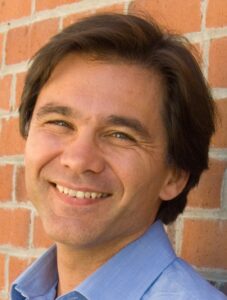
Dr. Miles Corak
Miles Corak is a full professor of economics with The Graduate Center of the City University of New York, and senior scholar at the James M. and Cathleen D. Stone Center on Socio-Economic Inequality. During the calendar year 2017, he was the Economist in Residence at Employment and Social Development Canada, the department of the Canadian federal government responsible for social policy. You can learn more at his website https://milescorak.com/about/ , or follow him on Twitter https://twitter.com/milescorak
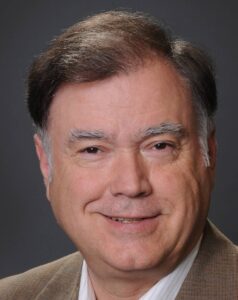
Dr. James Davies
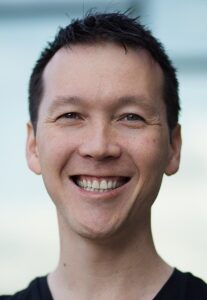
Joseph Fung
Joseph is the CEO of Uvaro, a tech sales career accelerator. A graduate of the University of Waterloo’s Computer Engineering program, Joseph’s a five-times technology Founder & CEO, and with multiple successful exits, and writes and speaks frequently on the topics of entrepreneurship, diversity, and corporate social responsibility. He has previously led Digital Strategy for the Centre for International Governance Innovation and the HR Technology business for Oracle NetSuite. He is an active early-stage investor who ensures that the majority of his investments are into women-led companies. Joseph also sits on the board of Communitech and led Uvaro’s commitment to Pledge 1%, where the company has donated a portion of its equity to charities focused on diversity & inclusion.
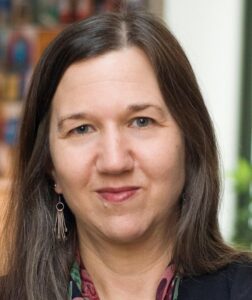
Dr. Janet Gornick
Janet Gornick is Professor of Political Science and Sociology at the Graduate Center, at the City University of New York (CUNY). She is also Director of the James M. and Cathleen D. Stone Center on Socio‐Economic Inequality – a research center at CUNY that also serves as the US satellite office of LIS, the cross-national data center in Luxembourg. Most of her research is comparative and concerns social welfare policies and their impact on gender disparities in the labor market and/or on income inequality. She is co‐author or co‐editor of three books: Families That Work: Policies for Reconciling Parenthood and Employment (Russell Sage Foundation, 2003), Gender Equality: Transforming Family Divisions of Labor (Verso Press, 2009), and Income Inequality: Economic Disparities and the Middle Class in Affluent Countries (Stanford University Press, 2013). In addition, she has authored many academic and popular articles. She frequently advises international and US-based journalists and policymakers.
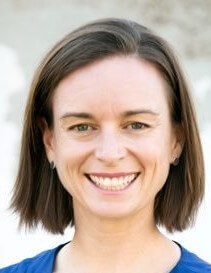
Kate Higgins
Kate Higgins is the Deputy Executive Director at Oxfam Canada, a leading Canadian international development and humanitarian organization working to end global poverty, fight inequality and promote women’s rights in Canada and around the world. Oxfam Canada is an affiliate of the global Oxfam confederation, a global movement fighting poverty and inequality with 10,000 staff working in 90 countries around the world. Prior to joining Oxfam, Kate worked in a range of strategy and policy research roles in leading global think tanks (Overseas Development Institute and North-South Institute) and civil society organizations (CIVICUS). Kate has lived and worked in several countries and has degrees in economics and development studies from the University of Oxford and the University of Sydney.
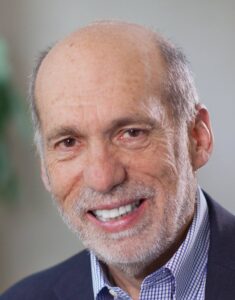
Dr. Micheál Kelly
Micheál Kelly is Dean of the Lazaridis school of Business and Economics. Prior to joining Laurier in 2012, he was a Professor of Strategy and Global Business and Dean of the Telfer School of Management at the University of Ottawa. He returned to the University of Ottawa in 1998 after a 10-year hiatus spent as an executive in the Department of Foreign Affairs and International Trade. He is currently a Director of Economical Insurance, the Canadian Advanced Technology Alliance (CATA) and Waterloo North Hydro. He is also a member of the Advisory Board of the School of Management of the Technical University of Munich. For his contribution to business education in Canada, he was awarded The Queen Elizabeth II Golden Jubilee Medal in 2002 and the Queen Elizabeth II Diamond Jubilee Medal in 2012. He was the University of Ottawa’s Alumnus of the Year in 2016.

Caitlin MacGregor
Caitlin MacGregor has always been passionate about identifying people’s potential. That’s why, after building two businesses for other people, she founded Plum. Plum quantifies human potential through the power of Industrial/Organizational Psychology and AI, creating agile enterprises and successful employees by matching people to jobs where they thrive. Caitlin is particularly passionate about supporting women to reach their full potential; she’s a regular speaker at women entrepreneur events and a champion of #movethedial, an initiative dedicated to increasing the leadership of women in tech. Caitlin was selected by Springboard Enterprises NYC as one of the top 10 businesses led by women.

Nisa Malli
Nisa Malli is the Manager of the Innovative + Inclusive Economy Workstream at the Brookfield Institute for Innovation + Entrepreneurship, where she leads research at the intersection of technology, labour, economic growth, and inequality. Previously, Nisa was part of the team that started the Privy Council Office’s Impact and Innovation Unit, a policy lab at the heart of the federal government, an advisor to the Deputy Ministers’ Committee on Policy Innovation, and a City of Toronto Urban Fellow, working on skills training and job-readiness programs for social assistance recipients and improving access to housing. Prior to joining the public service, she ran digital literacy programming for seniors, newcomers, and job seekers. She holds an MA in Public and International Affairs from the University of Ottawa, researching open government and digital citizen engagement, and a BFA in Writing from the University of Victoria.
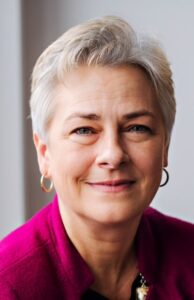
Dr. Norah McRae
Norah McRae, PhD, is the Associate Provost for Co-operative and Experiential Education and an adjunct professor at the University of Waterloo, Canada. Through her involvement in co-operative education, work- integrated learning (WIL) and community engagement she has led strategic program development and research on the development of a quality WIL framework, student engagement, work-integrated learning, indigenous WIL and intercultural competency development. Dr. McRae has received awards for her work from Canadian (CEWIL 2012, 2014, 2016; CBIE 2020), American (CEIA 2020) and world associations (WACE 2017). Dr. McRae has 25+ publications including in the International Handbook for Co-operative and Work-Integrated Education, the International Journal for Work-Integrated Learning and the CEIA Journal.
Preparing for the Future of work through work-integrated learning
https://publications.uwaterloo.ca/future-of-work-through-work-integrated-learning/welcome/
Equipping today’s learners for tomorrow’s work
https://uwaterloo.ca/news/global-impact/todays-learners-tomorrows-work
Are you ready to manage the workforce of the future?
The Work-Learn Institute – The only research unit of its kind researching the development of talent through quality work-integrated learning programs (WIL).
https://uwaterloo.ca/work-learn-institute/
The Future Ready Talent Framework
The University of Waterloo’s Future Ready Talent Framework (FRTF) is a research-backed tool to help students, employers and educators understand the key competencies we all need to navigate the future of work and learning. The FRTF profiles four sets of competencies with a total of 12 competencies that are expected to be in demand in the emerging global workplace
https://uwaterloo.ca/future-ready-talent-framework/
Work-integrated Learning Community Support & Research Portal
https://wilresearch.uwaterloo.ca/
This portal shares research contributions from the international co-operative education and work-integrated learning community.
- Responding to an international crisis: The adaptability of the practice of work-integrated learning (2020)
- Remote work-integrated learning experiences: Student perceptions (2020)
- The role of work-integrated learning in the development of entrepreneurs (2020)
- Contributions of work-integrated learning programs to organizational talent pipelines: Insights from talent managers (2020)
- Lifelong learning mindset and career success: evidence from the field of accounting and finance (2020)
- Creating inclusive co-op workplaces: Insights from LGBTQ+ students (2019)
- Professional development needs of the international work-integrated learning community (2019)
- A systems approach to examining co-operative education: A case study (2019)
- The impact of work-integrated learning students on workplace dynamics (2019)
- Improving unmatched co-op students’ emotional wellbeing: Test of two brief interventions (2019)
- Testing a model of co-op students’ conversion intentions (2019)
- Skills articulation and work-integrated learning (2018)
- Using data mining methods for research in co-operative education (2018)
- Successful work-integrated learning relationships: A framework for sustainability (2018)
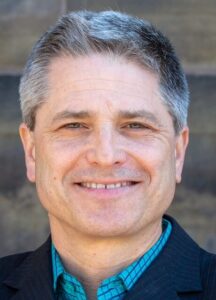
Dr. Matthew Mendelsohn
Matthew Mendelsohn is a public policy entrepreneur, researcher, educator and public sector executive. He has been using public policy to deliver economic and social impact for 25 years. He is currently a Visiting Professor and co-founder of First Policy Response at Ryerson University, and a Senior Advisor to BCG’s Global Public Sector Practice. From 2016-2020 he served as Deputy Secretary to the Cabinet, leading the Prime Minister’s Results & Delivery Unit, driving implementation of the Government’s policy and program agenda, and the Government of Canada’s Impact & Innovation Unit. During his time in Ottawa he also led the Government of Canada data strategy, oversaw advice on digital and platform governance, and designed Impact Canada to deliver Challenges and outcomes-based funding initiatives for the government. Prior to his role at PCO, Matthew was the founding Director of the Mowat Centre, a public policy think tank in the School of Public Policy & Governance at the University of Toronto, and published and spoke widely on economic and social policy issues. Matthew is a former Deputy Minister with the Ontario government, was a chief architect of the 2015 Liberal election platform and was a member of Prime Minister Trudeau’s transition team. Matthew received his B.A. from McGill University and Ph.D. from the l’Université de Montréal and was a tenured faculty member in the Department of Political Studies at Queen’s University and has been a volunteer board member for many not-for-profit organizations addressing issues of economic, social and democratic inclusion.
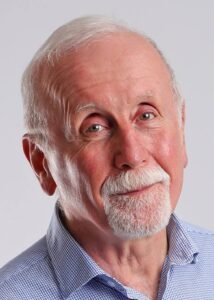
Dr. Lars Osberg
Lars Osberg is McCulloch Professor of Economics at Dalhousie University, Halifax. Born in Ottawa, Ontario, he attended Queen’s University, Kingston and the London School of Economics and Political Science before working for the Tanzania Sisal Corporation as a CUSO volunteer. He went to Yale University for his Ph.D. and was at Western before moving to Dalhousie. He has had visiting positions at New York University and the Universities of Cambridge, Sydney, New South Wales, Essex and Queensland, as well as Research on Poverty Alleviation (REPOA), Dar es Salaam, the Indira Ghandi Institute for Development Research,. Mumbai, the Organization for Economic Co-operation and Development (OECD), Paris and The Institute for New Economic Thinking, Oxford. His first book was Economic Inequality in Canada (1981) and there have been ten other since, plus four editions of an introductory economics textbook and over 150 refereed articles and book chapters. In June 2019, his most recent book The Age of Increasing Inequality: The Astonishing Rise of Canada’s 1% was awarded the Canadian Economics Association He was President of the Canadian Economics Association in 1999-2000 and was appointed a Fellow, Canadian Economics Association in June 2020. His current research emphasizes the measurement of economic well-being and the implications of increasing inequality, economic insecurity and inequality of opportunity.
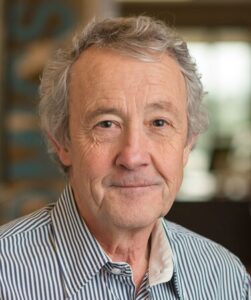
Dr. Craig Riddell
Craig Riddell is Professor Emeritus, Vancouver School of Economics, University of British Columbia. He has published widely on topics in labour economics, labour relations and public policy, including income inequality, education, skill formation, unemployment, social programs, immigration, and unionization. Professor Riddell is former Head of UBC’s Department of Economics, Past-President of the Canadian Economics Association and former Director of the Canadian Labour Market and Skills Research Network. He has received numerous awards, most recently the Mike McCracken Award for contributions to labour market data and the 2016 Doug Purvis Memorial Prize for the book Income Inequality: The Canadian Story. In 2020 he was named a Fellow of the Canadian Economics Association.

Diana Rivera
Diana Rivera is a Senior Economist at the Brookfield Institute for Innovation + Entrepreneurship, where she explores the role of innovation and related policies in the labour market, and analyzes their economic and social impact on communities and society as a whole. Diana recently led the development of an employment and skills forecast, Employment in 2030, which highlighted the skills that could become foundational to Canada’s labour market in the decade ahead. She is currently focused on Job Pathways projects that aim to identify transition pathways for workers who may face disruption in the coming years.

Dr. Claire Trottier
Claire Trottier is a philanthropist, advocate, and activist who works to pursue a vision of a more healthy, equitable, and sustainable society. Claire actively advocates for policies that address income inequality. For example, she has participated in public calls for wealth taxation by the US-based group Patriotic Millionaires. She has also volunteered with Resource Movement, a community of young people with wealth and/or class privilege working toward the redistribution of wealth, land, and power. Claire volunteers on the boards of several organizations, including the Trottier Family Foundation, McGill University Health Centre Foundation, and the Welcome Collective, an organization she co-founded that supports newly arrived refugee claimants in Montreal. She is currently collaborating with a consortium of Quebec-based foundations to address the needs of diverse communities in Montreal during the COVID-19 pandemic. Claire has a Ph.D. in microbiology and immunology and just recently ended her time as an Assistant Professor at McGill University, where she was recognized for her innovative teaching practices and leadership in education through the SALTISE Best Practices & Pedagogical Innovations Award in 2018 and the Maude Abbott Prizein 2019. Claire lives in Montreal with her husband, children, and dog.

Dr. Élisabeth Vallet
Élisabeth Vallet is Associate Professor at CMRC-Saint Jean, Director of the Center for Geopolitics at the Raoul-Dandurand Chair in Strategic and Diplomatic Studies, Adjunct Professor in the Department of Geography at UQAM and the Quebec lead of the Borders in Globalization program (University of Victoria) and a Canadian International Council Fellow. She has published several books, book chapters, as well as scientific papers and reports on borders, gender in politics, American politics and border walls. She is also a regular columnist for the Canadian National Network (Radio-Canada) as well as for the newspaper Le Devoir. She received the Richard Morrill Outreach Award 2017 from the AAG’s Political Geography Specialty Group.

Dr. Michael Veall
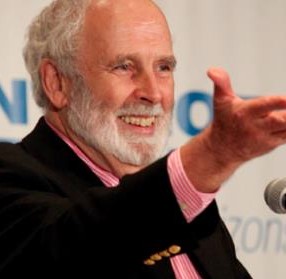
Dr. Peter Warrian
Dr. Peter Warrian is Distinguished Research Fellow, Munk Centre for International Studies, University of Toronto. He is Canada’s leading academic expert on the steel industry. His current research is on knowledge networks, supply chains and engineering labour markets. He has been an economic consultant for 20 years working with business, government and labour clients in the areas of labour market analysis, training needs assessments and industry studies. He was formerly Research Director of the United Steelworkers of America. From 1992-94 he was Assistant Deputy Minister of Finance and Chief Economist of the Province of Ontario. He is Chair of The Lupina Foundation, a private foundation funding activity in the area of Health and Society. He served as Chair of the Philanthropic Foundations of Canada (PFC) 2005-2010. He is Past Chair of the Wellesley Institute in Toronto and is Vice-Chair of the Governing Council Regis College. He has served as a member of the Board of Directors and is Past Chair of the Toronto Symphony. He is a graduate of the University of Waterloo and the Sloan School of Management, Massachusetts Institute of Technology.

